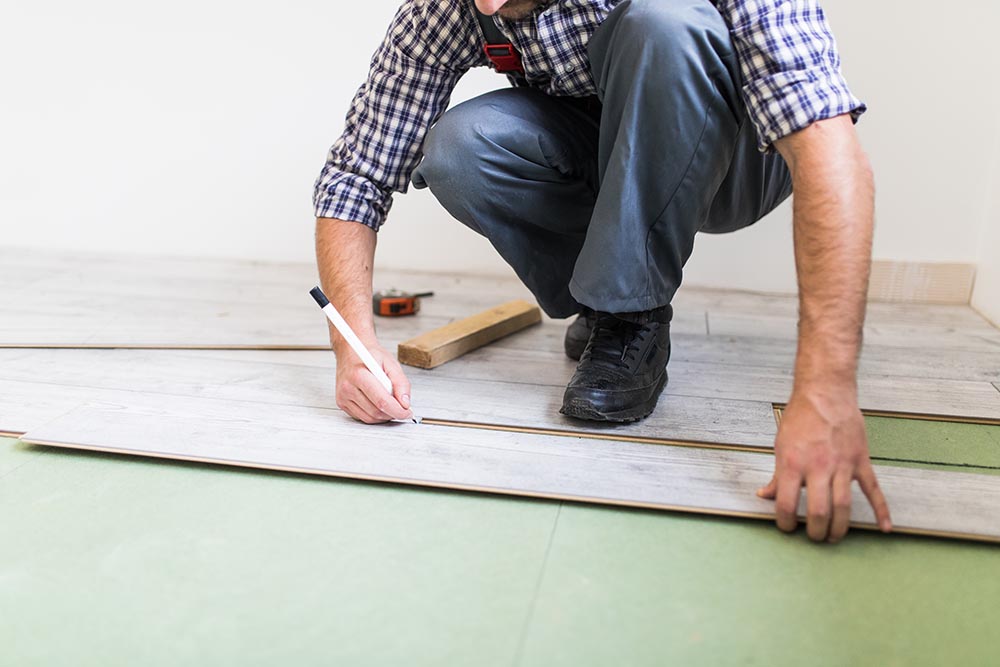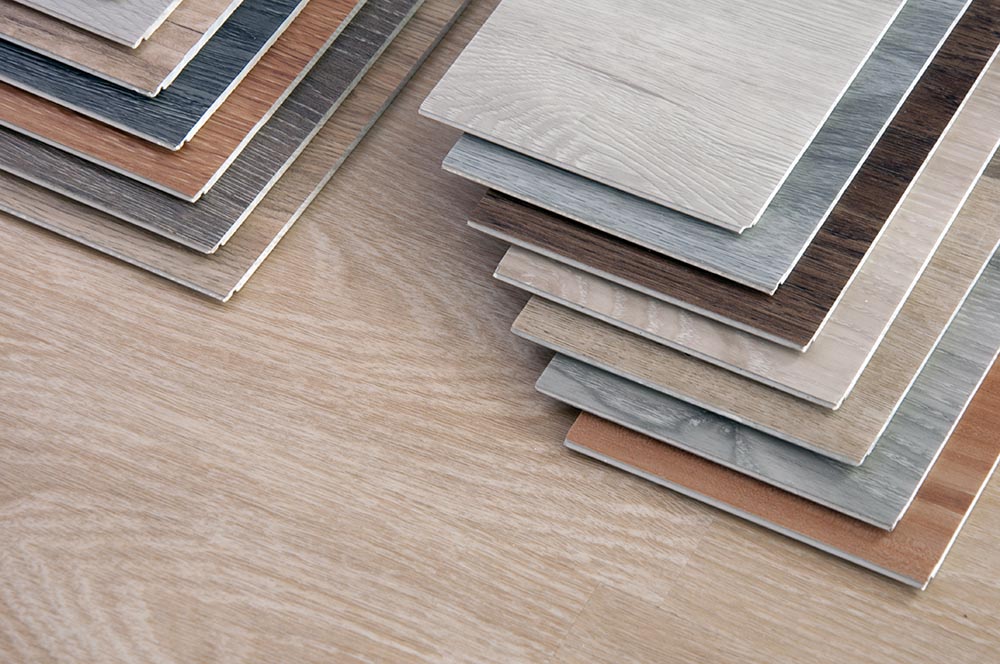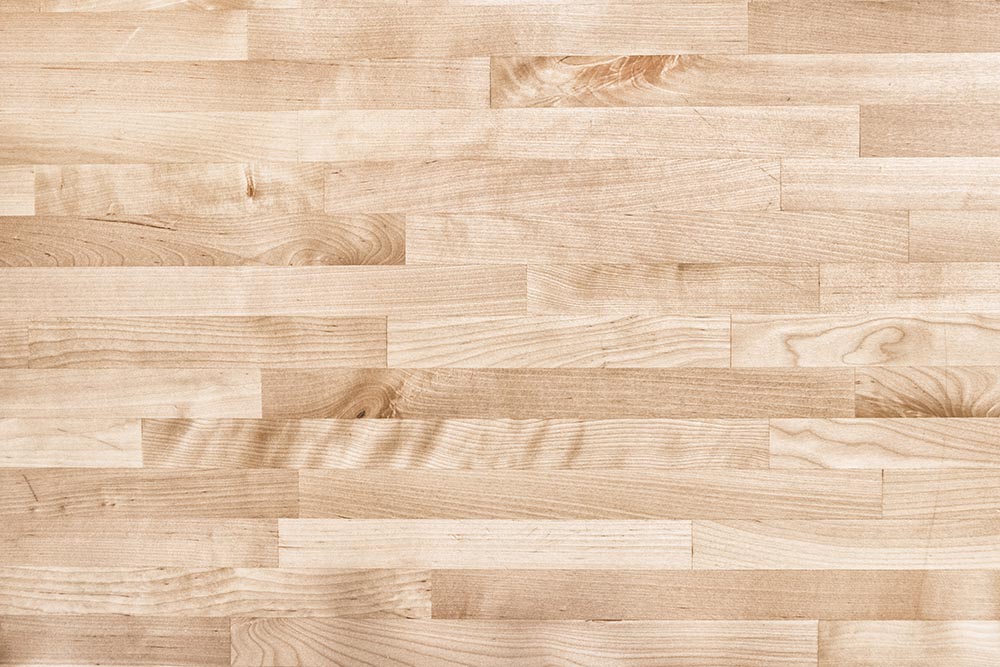Are you struggling to decide as to whether engineered hardwood or laminate flooring is the best option for your home? If so, then this is the article for you. Whilst both materials certainly have their pros and cons, there are key differences between the two that will help you make your final decision.

What is the difference between laminated and engineered flooring?
What is the difference between laminated and engineered flooring? In order to give you a clear idea as to how both differentiate, we’ll list a number of important factors and how each flooring product fares in that regard.
APPEARANCE
- Engineered hardwood: Engineered hardwood flooring wins this round because the upper layer is made up of 100% hardwood, giving it a natural grain and appearance
- Laminate flooring: Laminate flooring can indeed emulate the appearance of wood with a variety of print options, but it’s not quite the real thing.
COST
- Engineered hardwood: Whilst engineered hardwood is inexpensive when compared to traditional hardwood flooring, laminate does win in terms of affordability
- Laminate flooring: Laminate flooring is the most cost-effective option when compared to all other flooring options with a wood-like appearance.
RESALE
- Engineered hardwood: In most cases, engineered hardwood flooring can increase your home’s value just as much as traditional, 100% hardwood flooring.
- Laminate flooring: Whilst high-quality laminate flooring can indeed add value to your home, engineered hardwood flooring wins this round!
DURABILITY
- Engineered hardwood: Engineered hardwood is durable enough, however, the veneer wear layer is inferior to that of laminate
- Laminate flooring: Laminate flooring wins the durability round as its heavy-duty wear layer offers ample protection from wear and tear from regular use.
MOISTURE RESISTANCE
- Engineered hardwood: Engineered hardwood is water-resistant, but it is not waterproof, so be mindful of moisture and spillages
- Laminate flooring: Laminate flooring ties with engineered hardwood flooring in this round as it is water-resistant but not waterproof as well.
MAINTENANCE
- Engineered hardwood: Engineered hardwood flooring can take quite a bit of maintenance to keep looking shiny and new. That, and with a detailed texture surface that comes with natural wood it can trap dirt far more easily
- Laminate flooring: Laminate flooring is arguably one of the easiest flooring types to keep clean and maintain.
DIY FRIENDLINESS
- Engineered hardwood: There are some varieties of hardwood flooring that are “click and lock” but most need to be glued and nailed into place which can be tricky for DIY novices
- Laminate flooring: Laminate flooring is one of the easiest flooring types for DIY novices as they have a simple interlocking “tongue and groove” system which can allow you to easily finish a room in a single day.
PET FRIENDLINESS
- Engineered hardwood: Engineered hardwood flooring, whilst irrefutably stylish and beautiful is not the best type of flooring for those with pets. This is because the surface can easily be scratched and is much harder to keep clean
- Laminate flooring: Laminate flooring has a durable scratch-resistant layer that protects well against sharp claws and is nice and easy to keep clean.
*Note* – When installing laminate floors in your home, if you have pets you should be aware of the risks. Rather than worry about the damage that your pets can do to your laminate flooring, worry about the damage that laminate flooring can to do your pets. This is not to put you off or say that it is entirely unsafe – but you should consider laying rugs where possible. You can find out more about the dangers here.

Which is more durable laminate or engineered hardwood?
Which is more durable, laminate or engineered hardwood flooring? The fact is, real wood veneer is not quite as durable as a laminate wear layer. Laminate flooring boasts a heavy-duty layer that protects from the wear and tear of regular traffic and use.
Just remember that whilst durability is important, as demonstrated above there are many different factors to consider and it’s all about weighing up those which are most important to you. For example, if you don’t have pets and small children then you may not need to worry so much about durability and resistance to wear and tear.

Can you tell the difference between laminate and engineered wood?
Can you tell the difference between laminate and engineered wood flooring? To the untrained eye, most people would not be able to tell the difference at all. Certainly, engineered wood flooring does have a much more attractive aesthetic appeal – but since laminate flooring can have a print layer that emulates natural wood rather well, most people wouldn’t be able to tell the difference.

Conclusion – engineered or laminate?
As you can see, there are a number of important factors to consider when choosing the best material for you. Having wood-style flooring installed in your home is a big decision and not something that you want to have to make very often! It’s a big job and can take a fair amount of work – so making the right decision is crucial.
Deciding on which is best is quite tricky. Certainly, laminate flooring has a number of advantages over engineered hardwood flooring, but that doesn’t necessarily make it superior as these are all circumstantial. As mentioned above, if you live in a low-traffic house without pets or children then buy quality engineered floating flooring. If, however, you are looking for something as cheap, durable, and pet/children-friendly as possible, then laminate wins every time.
We hope that you have found this article helpful and that you have a better understanding of how both flooring types differ and which would be best suited to your home. If you would like to explore both flooring types further to get more of an idea of cost comparison and aesthetic appearance, then find a reputable manufacturer and supplier for some more inspiration.
In any case, whichever flooring you decide is best for your home, we wish you all the best with your new home renovation project!

